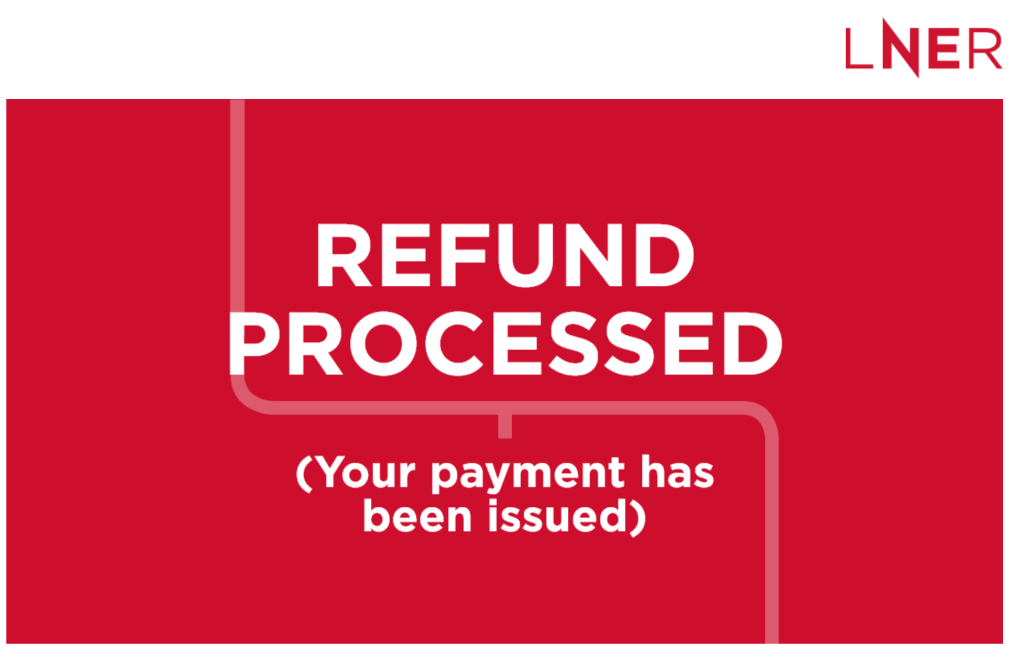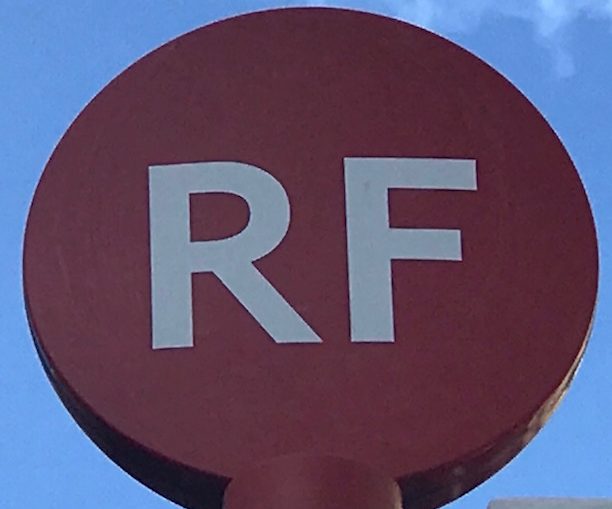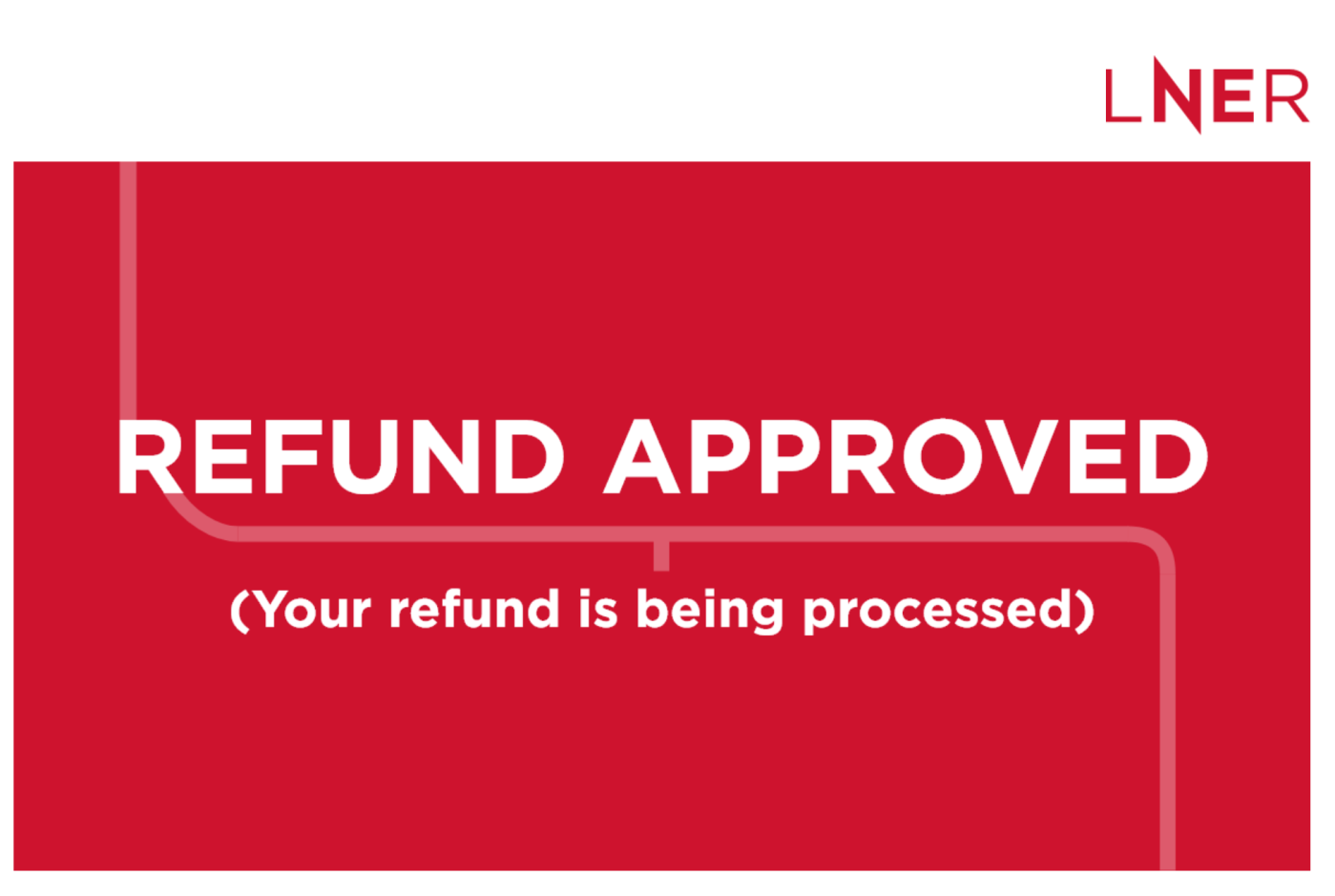Tuesday 15th March 2022

I’ve been ‘off the road’ for operational reasons since last Monday (otherwise known as testing positive for Covid) which has given me an opportunity to reflect on the rail industry’s policy on ticket refunds.
It’s all very simple if you’re a Marks & Spencer customer. Famous for its no quibble policy, the store commits to a full refund within 35 days “if the item is in its original packaging and accompanied by a valid proof of purchase”. Can you imagine M&S charging a £10 administration fee when you return an unopened pack of medium size Y-fronts because you meant to buy large size?
Yet it’s standard practice for train companies to impose a £10 administrative charge for refunding an unused rail ticket prior to its departure date. Why?
It’s not as though it costs anything like £10 to process a refund. A review published last month by the Office of Rail and Road (ORR) concluded the average cost of processing refunds is less than half that amount.
Whatever the administrative cost, charging a passenger for a refund is as far removed from being ‘customer led’ as you can get so to profit out of the process reflects very badly on the railways indeed. It does nothing to encourage passengers.
To their credit train companies are currently waiving the £10 fee for changing or cancelling Advanced tickets as an encouragement to entice passengers back to rail travel but this concession only lasts until the end of this month after which I assume the £10 fee will be back.
Why doesn’t the rail industry surprise us all and show it’s serious about wanting a positive relationship with passengers by cancelling the 31st March deadline and commit to permanently allowing amendment or cancellation of tickets purchased in advanced and not used due to changed plans?
It’s not all bad though, and a big shout out to James at LNER Customer Services who sorted out a refund for me on Friday with the minimum of fuss proving to be an exemplar in good customer service.
I had Advanced tickets worth £71.20 purchased a while ago for a journey last Thursday with LNER so due to the need to self isolate on Tuesday followed the instructions by completing a form on the company’s website – where I’d booked – to obtain a refund, or what I thought might be a travel voucher of equivalent value, something mentioned on the website as well as on others including Avanti, GWR etc.
Being a traditionalist I’d opted for collecting tickets from a ticket machine for my journey which I’d already done and as it occurred to me, come Friday, LNER wouldn’t have had proof I hadn’t made the journey the previous day, I gave LNER a call to see what the score was. After the usual press this for that and that for this etc intro, an impressively quick answered phone (no “high call volume” being experienced) saw James do the business; got me to send a photograph of the cut up tickets and positive lateral flow test result and a £71.20 refund was on its way back to my credit card – not even a travel voucher. That was impressive and thanks LNER and James in particular.

So why not make it a permanent arrangement? I appreciate some may choose to game the system and book Advanced tickets well ahead to get good prices with only a vague intent on travelling, knowing they can cancel nearer the time and cause administrative headaches, but that could be sorted by imposing appropriate conditions or minimums. In any event, the huge disparity between Advanced ticket prices and buy-on-the-day tickets needs sorting too, as covered in a recent post.
The ORR’s recent report was “based on data from train operators and third-party retailers spanning 12 months from 1 April 2019 to 31 March 2020, when 341 million tickets were issued, of which 5.8 million were refunded”. That’s 1.7% of tickets (one in 59) issued. ORR worked out the estimated average cost of processing a refund at £3.77 but as some fees were waived during that twelve month period, the cost spread over a smaller number of passengers being charged £10 worked out at £4.64 – still less than half the amount passengers had to cough up.
The Ticketing and Settlement Agreement to which all train companies comply states “an administration fee must reasonably reflect the cost of processing the refund application and where an operator charges a fee it should be the same for all transactions of that type” – Section 6-49, paragraph 4.
In practice ORR’s survey showed variations in what different train companies and retailers actually charge. Trainline, for example, has a tiered policy with refunds on the lowest value tickets (below £2) attracting no fee with the maximum £10 charged on fares of £15 and over. ORR say 28% of potential administration fees were waived during 2019/20.
The overwhelming majority of claims (92%) in 2019/20 were made electronically with 6% made by post and 3% in ticket offices. Almost all (94%) were paid out by card payment. As you can see claims can be dealt with efficiently and remotely using electronic processes and thereby minimising costs.
Come on railway people, the ORR survey shows you can use your discretion to waive the fee why not really show “passengers are at the heart of everything we do” and abolish the £10 administrative fee once and for all. M&S would.
Roger French
Blogging timetable: 06:00 TThSSu.
Next blog, Thursday 17th March 2022: TfL’s Bus Action Plan.


It strikes me that a problem can arise if someone buys a card ticket, cancels and then tries to use it. The conductor (or barrier) won’t know that it’s been cancelled. So it makes sense that you had to provide evidence of the destroyed ticket.
But perhaps there’s another way. recently changed some tickets for a local theatre. These were “print at home” tickets with a QR code. It was easy and simple to do. And the beauty of the system for the theatre must be that, if someone shows up with an invalid ticket, that will show up when the ticket is scanned.
LikeLike
There have been legal challenges on charges by the regulators. I don’t think the rail firms have had such a challenges yet though. Ones that have are airlines and banks. The decisions have generally been any such charges should reflect actual costs and should not be excessively high
LikeLiked by 1 person
Great British Rail
Maybe Great British Railway improve things. Politicians though do not have a great track records with these things. The Bus Back Better legislation will overlap with this a bit as well
It seem the next move with Great British Rail is the Publication of the Strategic plan in the Spring
One can assume NI rail is out of scope with this but I am unsure where rail in Scotland and Wales and TfL rail fit in with this
For the purpose of managing it there will need to be some management structure under GBR. Things like Procurement and contract management . HR. Legal , IT, Signalling standards etc are probable best kept at GBR level. Perhaps underneath that something similar to the old BR regional structure
https://gbrtt.co.uk/wisp/
LikeLike
Good to see that the old £10 charge is not always applied. Too often, the railways see this as a nice little earner, and the customer as the supplicant who can take it or leave it.
LikeLike
Pedant’s corner- I think Trainline’s policy is tiered rather than tired!
LikeLiked by 1 person
Good spot; thanks Phil. Updated.
LikeLike
Tiered or not, Trainline can afford to vary charges because it charges its customers a hefty booking fee for selling the tickets on top of the sales commission it gets from the railway for selling the very same tickets.
Personally I consider that a rip-off, but plenty of people seem happy to pay those extra fees.
LikeLike
A lot of people seem unaware of the fees, but then even when I’ve told them about it and told them to use the GWR or LNER one cause it’s the same thing but free they refuse to change!!! Bonkers. Although weirdly cross country have started charging £1 for pickup at station tickets to try and push e-tickets so I never use them now
LikeLike
Perhaps the rail industry also need to follow M&S when it comes to delay repay. If a next day delivery parcel leaves the M&S warehouse late, they automatically issue a full refund of the delivery cost. It must cost M&S quite a bit, but the good customer service encourages me to keep buying from them.
LikeLiked by 2 people
Remind which bus companies offer refunds for unused, prepurchased tickets? As far as I’m aware it’s a big fat none.
Amuses me that bus industry managers complain about the rail industry’s refunds policy when their own industry flat refuses to do so.
LikeLike
In my experience bus companies do not push prepayment for single or return tickets. Having spent 20 years pushing advance tickets the fiasco with not refunding or extending railcards while advising people not to travel was an own goal.
LikeLiked by 1 person
If your circumstances change Transport for West Midlands will normally refund any part of a prepaid ticket as part of the Centrocard scheme pro rota minus an standard administration charge.
LikeLike
I’d certainly echo the praise for LNER. Due to suffering a fall and a fracture I was unable to use Advance tickets for travel with both LNER and Avanti West Coast, and tickets were e-tickets. LNER ones were cancelled via the App, agreed quickly and e-vouchers in the App in short space of time. For AWC online form had to be completed and a scan of the etickets sent. Their acknowledgement says it can take 4 weeks – halfway there now and still waiting! Ridiculous….,
LikeLike
I had an ordeal with GWR in 2019. I was going to Bristol to see Tipping Point but my trip was rendered Pointless 😀 when GWR cancelled my train. I’d ordered train tickets and plus bus online to collect at the station. As I checked live departures I didn’t get as far as the station. I claimed a refund online. Nothing happened. When I queried it I was told I had to claim by postal form which I duly did. I then received two emails one confirming refund of plus bus and the other the train fare. I only received the plus bus refund. Numerous enquiries about the missing train refund where fobbed off onto a third party card processor. In the end I spoke to my credit card provider who immediately refunded me. GWR kept emailing me customer satisfaction surveys throughout this process.
LikeLike
Completely fair comment. Thanks for raising it.
You will know from Southern that if you buy a ticket and don’t collect it on cardboard at all, the refund is instant and complete. You only lose the canx fee if you pick up the ticket (for example if you know that the bus – train connexion is tight and you don’t want to risk missing your chosen service, so you pick up the day before). Thats good.
Your call to James aside, this is machine learning territory. Its your card issuer and you interacting with the trainco first, followed by the same process in reverse. James aside, no human touches either transaction, so why is there any cost at all?
The standing cost of the computer infrastructure is capable of having been built into the profit/loss equation – and should have been amortised long ago.
Human beings need to dip test one refund in a 100,000 such to defeat fraud, but thats it.
LikeLike
Well if you don’t change the fee it would encourage people to book up Advance tickets which are quota controlled thereby reducing the quota but then changing their plans at the last moment and getting their money back.It’s a mistake looking at what Marks and Spencer,or as Barry Doe use to pick Sir John Lewis’s,does as they are selling solid objects not travel.You have to look at what other travel organisations offer.Try getting your money back on a National Express or Mega Bus ticket….you won’t or an airline unless you have booked the most expensive type you’ll have problems and you’ll come up against the admin fee.The problem is now due to the influence of Sir John Major’s sidekick Sir Richard Branson everyone is encouraged to book ahead and this has become the new norm.
LikeLike
Roger so sorry to hear you are under the weather, get well soon your comments and thoughts are invaluable mate.
LikeLike
The scariest Stations on the Underground
Only 2 now left that I am aware of they are Clapham North & Clapham Common these have a single narrow island platform. The Angel & Euston also use to have an island platform but were rebuilt. These platforms are only about 10′ wide. They get even more scary if trains arrive as you go onto the platform. May be now they at least avoid two train comming in at the same time. You have people getting off both trains as well as peopler going onto the platform. Not a pleasant experience
LikeLike
Suggest you never venture onto the Glasgow Subway then…. Lots of very narrow island platforms.
Not sure what that has to do with rail ticket refunds, but hey.
LikeLike
Demise of Brightons Bendy Buses
The Brighton Bendy buses are to be phased out this year. THe primary reason given being falling student numbers. The secondary reason being Brighton tightening up it LEZ. Although not mentioned I should imagine these Bendy buses are near end of ther life as well
LikeLike
So sorry to hear you’re having to take some time out from travelling – my sympathy and very best wishes.
Any chance you could use the time for a few ‘introspective’ blogs – maybe follow up the Harrogate issue with some more Best Practice tips from your own wide and expert experience. While a lot of the Harrogate points involved basic ‘gumption’, there were some quantifiable costs involved, principally staff. So – for a commercial company, there should be a quantifiable (withing a range of estimates) benefit accruing from extra bus travel. Do bus companies keep any figures on how ‘ventures’ like providing paper timetables generate more bus use?
For councils who may provide things like bus shelters, in theory at least they are buying benefits for their people, which should accrue from greater bus use: less congestion, more high-street sales (happier shops), and hopefully a bit less wear and tear on the roads. Again, has anyone tried to produce concrete figures for these? The same applies to pensioner bus-passes. Unlike TV licences or winter fuel allowance, the bus-pass only costs the councils money when it is actually used, so the council should at least partly recover the subsidy to bus companies through reduced road maintenance at least.
One commenter on another of your blogs said that they would always do their ‘weekly shop’ by car. This is not talked about a lot, but could be a big win if the bus industry can address it. How do non-car-users do their shopping? – more frequently? (maybe a cheap ‘3 times a week’ ticket); – with trolley-bags? (more space for them on buses); are services frequent enough? (esp. for the return journey).
Apologies that this was so long! – hope you are able to be out and about again soon.
LikeLike
For the small and medium size towns how about setting up a local delivery service. Plenty of spare buses in the evenings and weekends to do this
Bus companies have to add value and make the services more attractive after all at one time buses did actually carry parcels
You would have to register for the service so that they have your delivery address details etc.
You could go around the town doing your shopping and not have to carry heavy shopping around. At the end of the day the items are al taken to a central delivery point for delivery the next day
LikeLike
So . . . imagine a double deck bus, full of parcels, accessing estate roads in the evening. How to get the bus up a dead-end road with parking on both sides; deliver; turn round and leave again. Not really practical, is it. Even a small midibus won’t fit . . . look at some roads and imagine if a fire engine needed access overnight.
Alternative . . . park in the middle of the estate and get the residents to come to you . . . like they’ll turn out at 10pm on a filthy wet night!!
Sorry, but this frequently-floated idea is a non-starter.
LikeLike
Agreed, but being creative…. Bus companies are partnering with Amazon (to move people, not parcels). Post buses were once a thing, presumably built around collections rather than deliveries? Minibuses have long been a thing as you say, but how many services have survived commercially? I’ve seen quite a few routes running most empty, but sometimes and unpredictably fill up considerably.
What did happen to Welwyn Hatfield Line by the way?
LikeLike
Typical bus industry cab’t do attitude. Of course its possible. Large duscarts and removal van get down these roads. No need to use large double deckers an old mini bus with the seats taken ouit will do
LikeLike
The parcel option might only be made to work for a rural parcel shop or urban locker, but I can’t see what would be in it for anyone, apart from cost and inconvenience, which surely we don’t need? We have too much of that already.
LikeLike
Welwyn Hatfield Line sold out to what was London Country NE (Sovereign as it became).
Effectively WHL ran out of capital . . . their fleet of Optare minibuses needed replacement, and there wasn’t the funds available, so they sold on.
Postbuses really only worked in very limited areas, usually deep-rural . . . they were better than nothing, but only just . . . they rarely carried more than 1-2 passengers.
Minibus networks of the 1980s and 1990s almost became victims of their own success and needed bigger buses which couldn’t get round the narrow roads. The fleet renewal problem was also relevent . . . early minibuses were van conversions with a short lifespan . . . and the Dennis Dart came along just in time!!
Bob . . . read my reply!! You suggest using buses in the evenings . . . just the time when the on-street parking is worst. You suggest using an old minibus with the seats taken out, but you also suggest that there are spare buses in the evening . . . so removable seats? Otherwise that’s an extra vehicle in the fleet . . . called a van!!
Not a “typical bus industry can’t do attitude” at all . . . it’s called pragmatism!!
LikeLike
What you are saying is you dont want passengers. People due to the pandemic have got used to using home shopping. Why should they now go back to using an infrequent and expensive bus service and then have to carry heaving shopping around with them?
If ther bus industry does not respomd to this they will not win the passengers back that they have lost in fact more will stop using the buses
It is a case of change or go out of business
LikeLike
Rotala have confirmed in thier accounts Diamond Bus has successfully returned to profit however usage of thier high quality premium network across Brum & The Black Country is around 80% of pre Covid-19 levels. I doubt it will recover beyond this & there is little the industry can do to go beyond this level in 2022 and its just simply folly to expect anytthing more from armchair bus users from my daily observations using the bus network here.
LikeLike
Of course we want more passengers!!!! Where has anything to the contrary been said?? Don’t be so ridiculous . . .
LikeLike
Roger so sorry to hear you are under the weather, get well soon your comments and thoughts are invaluable mate. And now for something completely different Rotala have returned to profit today.
LikeLike